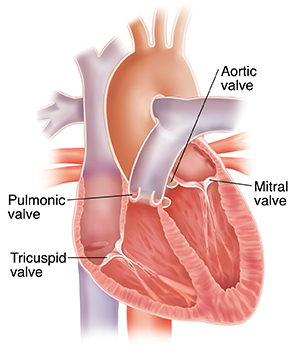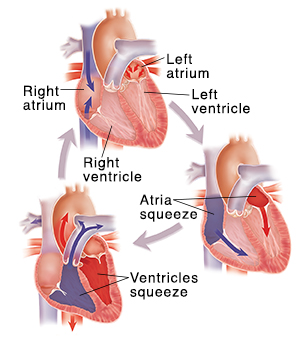The heart has four valves. They are the aortic, pulmonary, tricuspid, and mitral valves. The valves open and close to keep blood moving in the right direction through the heart. Blood moves through the heart as it beats. With each squeeze, the valves open and close to keep blood moving forward. In this way, valves keep blood moving as well as possible through the heart. They also prevent backflow.
When the heart relaxes between beats:
-
Oxygen-rich blood from the lungs fills the left atrium.
-
Oxygen-poor blood from the body fills the right atrium.
When the atria beat:
-
The left atrium squeezes. This pushes blood through the mitral valve into the left ventricle.
-
The right atrium squeezes. This pushes blood through the tricuspid valve into the right ventricle.
When the ventricles beat:
-
The left ventricle squeezes. This pushes blood through the aortic valve out to the heart arteries, the brain, and body.
-
The right ventricle squeezes. This pushes blood through the pulmonary valve to the lungs.



